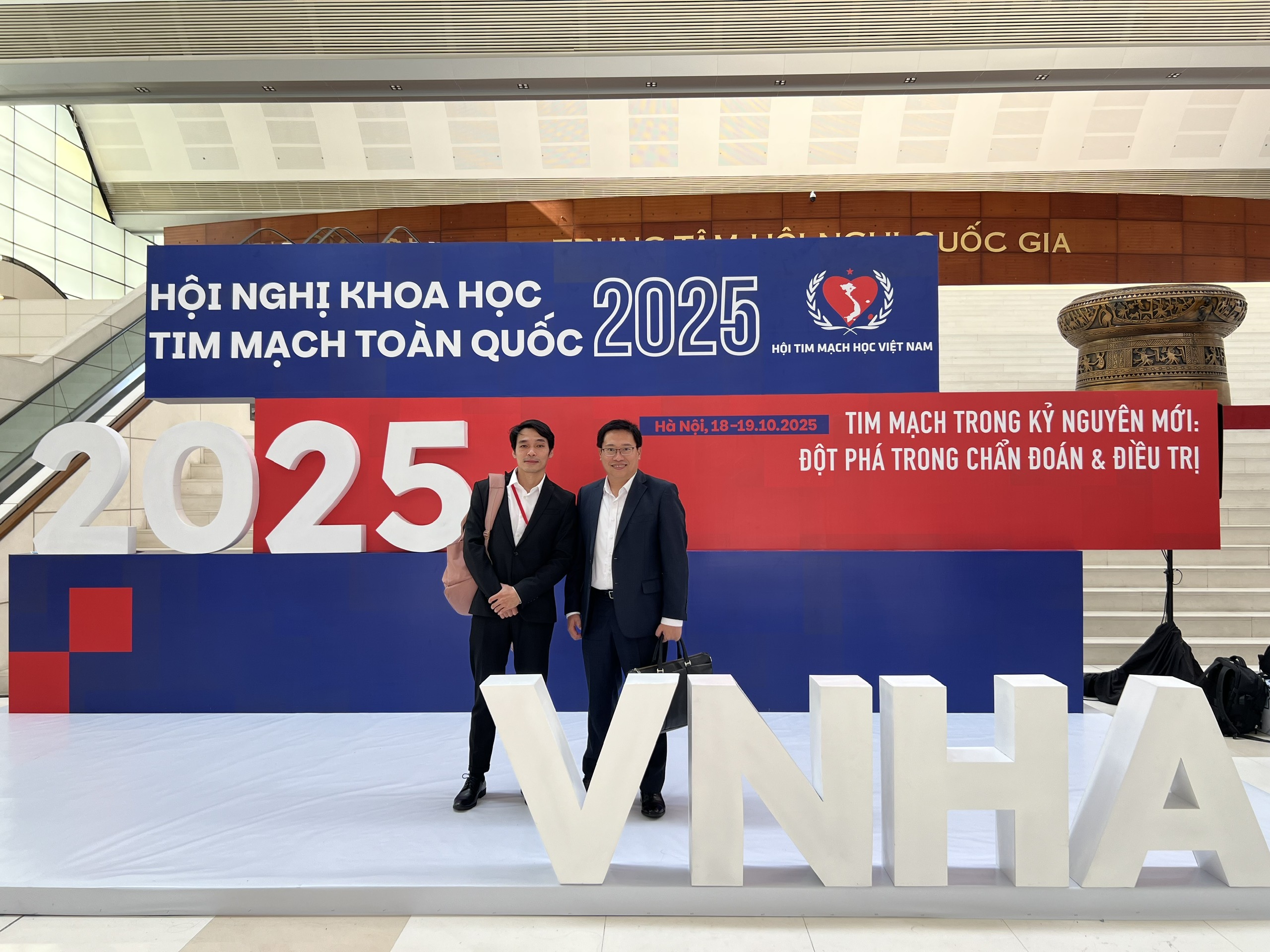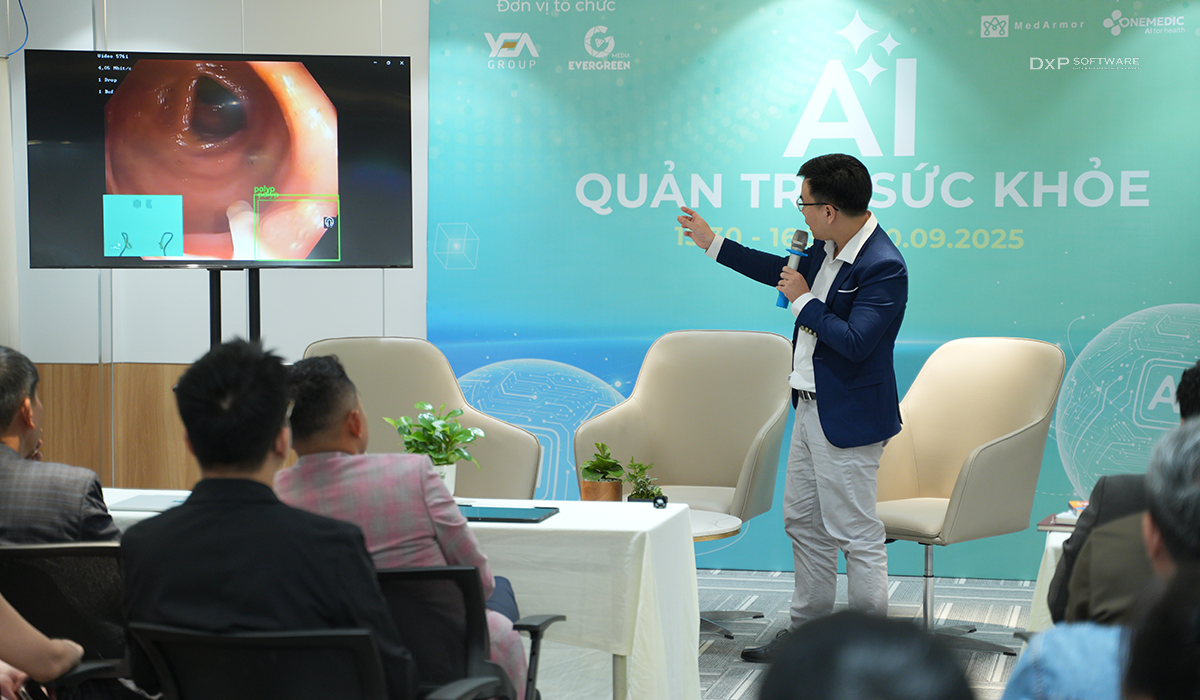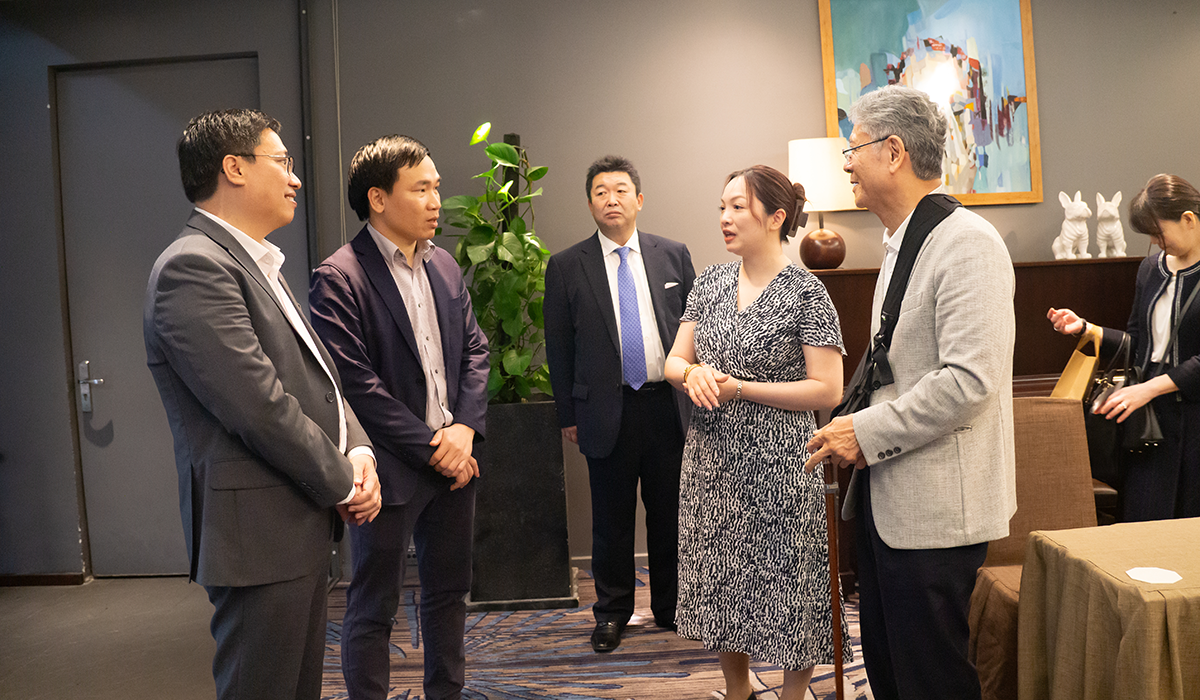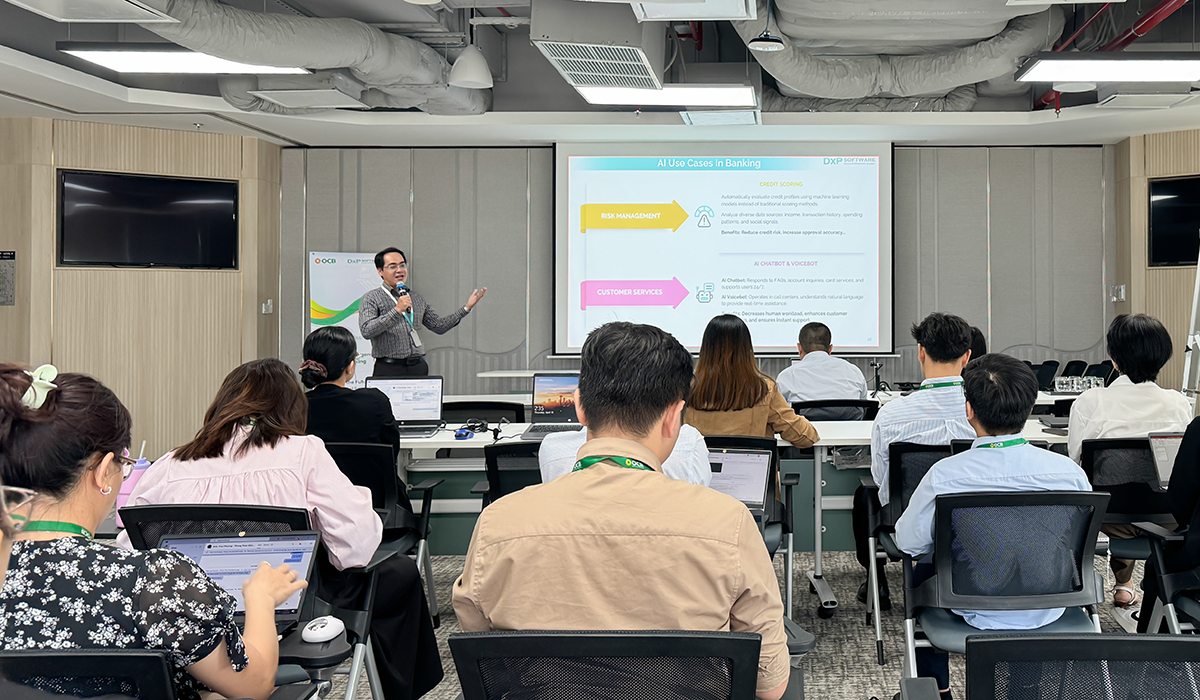
DXP Software at the National Cardiology Conference 2025: AI for Cancer Detection

Hanoi, 2025 — DXP SOFTWARE was honored to participate in the National Cardiology Conference 2025, where the company showcased its cutting-edge AI solutions for Cancer Detection and Diagnosis. The session was led by Dr. Trinh Phuoc Toan, a distinguished expert with a Ph.D. in Mathematics and Physics from the Peoples’ Friendship University of Russia. Dr. Toan specializes in neural network architecture and the optimization of deep learning models for low-latency inference, making him ideally suited to present DXP SOFTWARE’s AI applications in the medical field.
Pioneering AI Technology for Cancer Detection
During the conference, Dr. Toan presented DXP SOFTWARE’s groundbreaking work in cancer detection, particularly focusing on the AI-based detection of lung cancer and colorectal cancer. DXP SOFTWARE’s innovative AI models aim to improve early detection rates for lung cancer through the analysis of CT scans. Lung cancer is a leading cause of death globally, and early detection is vital for improving patient outcomes. DXP SOFTWARE’s AI system helps detect lung nodules, an early and often overlooked indicator of lung cancer, particularly small nodules that are challenging to detect through traditional methods.
Key Technical Insights
Dr. Toan shared several important features of DXP SOFTWARE’s AI technology:
- AI for Lung Cancer Detection:
The system utilizes CNN (Convolutional Neural Networks) to detect lung nodules in CT images. The AI is capable of identifying even the smallest lesions, which is crucial in detecting lung cancer at an early stage. - AI for Colorectal Cancer Detection:
The AI also focuses on colorectal cancer, specifically detecting colon polyps. By analyzing large datasets such as CVC-ColonDB and MICCAI2017, DXP SOFTWARE’s model identifies polyps with high accuracy, which is essential for early intervention. - Optimized CNN and Transformer Architecture:
The AI models are built on advanced CNN and Transformer architectures that extract deep features from CT images. These models provide high sensitivity, enabling the identification of lung nodules even in noisy images, such as those affected by blood vessels or lung tissue. - Low-Latency Inference for Real-Time Processing:
DXP SOFTWARE’s system is optimized for low-latency inference, which is critical in clinical environments where timely decisions are crucial. The system uses techniques like model quantization, pruning, and graph fusion to enable fast and efficient AI processing, making it ideal for high-pressure medical settings. - Multi-View and Multi-Modal Training:
A key innovation discussed was the use of multi-view training. By incorporating multiple imaging modalities, such as CT scans taken from various angles, the AI model gains a more comprehensive understanding of the tumor or nodule’s characteristics. This helps improve accuracy in detecting small or obscured lesions. - Clinical Standardization and Validation:
Dr. Toan also emphasized DXP SOFTWARE’s commitment to clinical validation and standardization. The AI system has been rigorously tested to meet medical standards, ensuring it performs reliably across different patient populations and imaging devices.
Use Cases and Real-World Applications
The AI technology presented by Dr. Toan has significant real-world applications, specifically for medical professionals:
- Prioritizing Suspicious Cases: The AI can flag potential lung nodules and polyps, enabling doctors to focus on high-risk areas first and speed up the diagnostic process.
- Supporting Early Diagnosis: By detecting abnormalities early, the AI helps clinicians make timely interventions, which can dramatically improve patient outcomes.
- Reducing False Positives and False Negatives: The system minimizes both false positives (incorrectly identifying healthy tissue as abnormal) and false negatives (failing to detect actual abnormalities), leading to more accurate diagnoses.
Future of AI in Cancer Diagnosis
The session at the National Cardiology Conference 2025 marked an important step forward in demonstrating how AI can transform cancer diagnosis. While DXP SOFTWARE’s AI model currently focuses on lung cancer and colorectal cancer, the technology is evolving to detect other types of cancer, including liver, breast, and cervical cancers. The ongoing research and development in AI for cancer detection lay a strong foundation for the future of medical diagnostics.




